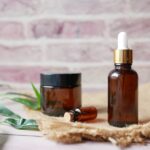Essential oils have a long and rich history that dates back thousands of years. The use of essential oils can be traced back to ancient civilizations such as Egypt, Greece, and China. These civilizations recognized the power and importance of essential oils in their daily lives, using them for various purposes including religious rituals, medicine, and personal care.
In ancient times, essential oils were highly valued for their therapeutic properties and were considered to be sacred. They were used in religious ceremonies, as offerings to the gods, and for embalming the dead. The Egyptians believed that essential oils had the ability to connect the physical body with the spiritual realm, and they used them in their rituals to achieve a state of higher consciousness.
The Role of Essential Oils in Ancient Egypt
Ancient Egypt is often referred to as the birthplace of aromatherapy, as it was one of the first civilizations to extensively use essential oils for medicinal and cosmetic purposes. The Egyptians were skilled in the art of extracting essential oils from plants and used them in various ways.
Some examples of essential oils used in Egyptian culture include frankincense, myrrh, cedarwood, and rosemary. Frankincense was highly prized for its healing properties and was used in religious ceremonies as an offering to the gods. Myrrh was used in embalming rituals and was believed to have powerful antiseptic properties. Cedarwood was used in cosmetics and perfumes, while rosemary was used for its stimulating and invigorating effects.
The significance of essential oils in Egyptian religion cannot be overstated. They were believed to have magical properties and were used to communicate with the gods. The Egyptians also believed that essential oils had the power to protect against evil spirits and promote good health.
Essential Oils in Ancient Greece: The Legacy of Hippocrates
In ancient Greece, essential oils were an integral part of medical practice. The Greek physician Hippocrates, often referred to as the father of medicine, made significant contributions to the use of essential oils in healthcare. He believed that the body had the ability to heal itself and that essential oils could help facilitate this healing process.
Hippocrates used essential oils in his treatments for various ailments, including digestive disorders, respiratory problems, and skin conditions. He believed that essential oils had the ability to balance the body’s humors and restore health. Some examples of essential oils used in ancient Greek culture include lavender, chamomile, and peppermint.
Lavender was used for its calming and soothing effects, while chamomile was used for its anti-inflammatory properties. Peppermint was used to relieve digestive issues and promote healthy digestion. These essential oils were often used in massage oils, baths, and inhalations.
Essential Oils in Traditional Chinese Medicine
In traditional Chinese medicine, essential oils have been used for thousands of years to promote health and well-being. Chinese medicine is based on the concept of balance and harmony within the body, and essential oils are believed to help restore this balance.
Some examples of essential oils used in Chinese culture include ginger, eucalyptus, and tea tree oil. Ginger is used to warm the body and improve circulation, while eucalyptus is used for its antiviral and antibacterial properties. Tea tree oil is used for its antifungal properties and is often applied topically to treat skin conditions.
The significance of essential oils in Chinese philosophy is closely tied to the concept of qi, or life force energy. Essential oils are believed to help balance the flow of qi within the body and promote overall health and well-being.
The Renaissance and the Rediscovery of Essential Oils
During the Renaissance period in Europe, there was a renewed interest in the study of essential oils. Alchemists played a significant role in the study of essential oils, as they sought to unlock the secrets of nature and harness its healing powers.
Alchemists such as Paracelsus and Avicenna conducted extensive research on essential oils and their medicinal properties. They developed new methods of extraction and distillation, which allowed for the production of more potent and concentrated essential oils.
Some examples of essential oils used during the Renaissance include rose, lavender, and lemon. Rose was used for its uplifting and aphrodisiac properties, while lavender was used for its calming and soothing effects. Lemon was used for its cleansing and purifying properties.
The Birth of Aromatherapy: Essential Oils in the Modern Era
The modern era saw the development of aromatherapy as a field of study. Aromatherapy is the therapeutic use of essential oils to promote physical, emotional, and spiritual well-being. It combines the art of aromatherapy with massage, inhalation, and other techniques to enhance the healing effects of essential oils.
In modern medicine, essential oils are used in a variety of ways. They are often used in massage therapy to promote relaxation and relieve muscle tension. They are also used in diffusers to create a calming atmosphere and promote better sleep.
Some examples of essential oils used in aromatherapy include lavender, chamomile, and peppermint. Lavender is often used for its calming and sedative effects, while chamomile is used for its anti-inflammatory properties. Peppermint is used to relieve headaches and improve digestion.
Essential Oils in World War I and II
During World War I and II, essential oils played a crucial role in wartime medicine. They were used to treat wounds, prevent infection, and provide relief from pain and discomfort. Essential oils were also used to boost morale and provide comfort to soldiers on the front lines.
Some examples of essential oils used during wartime include tea tree oil, lavender, and eucalyptus. Tea tree oil was used as an antiseptic to treat wounds and prevent infection. Lavender was used to promote relaxation and relieve stress, while eucalyptus was used to relieve respiratory congestion.
The significance of essential oils in wartime medicine cannot be overstated. They provided a natural and effective alternative to conventional medicine and helped improve the overall well-being of soldiers.
The Science behind Essential Oils: How They Work
The therapeutic properties of essential oils can be attributed to their chemical composition. Essential oils are made up of volatile compounds that are extracted from plants through various methods such as steam distillation or cold pressing.
These volatile compounds interact with the body in several ways. When inhaled, the molecules of essential oils stimulate the olfactory system and send signals to the brain, which can have a profound effect on mood and emotions. When applied topically, essential oils can be absorbed into the bloodstream and have a direct impact on various systems of the body.
There is a growing body of scientific evidence that supports the use of essential oils for various health conditions. Studies have shown that certain essential oils have antimicrobial, anti-inflammatory, and analgesic properties. They have also been found to have positive effects on mental health, including reducing anxiety and improving sleep quality.
Essential Oils Today: A Booming Industry
The essential oil industry has experienced significant growth in recent years, driven by increasing consumer demand for natural and holistic remedies. Essential oils are now widely available in various forms, including pure essential oils, blends, and ready-to-use products such as roll-ons and diffuser blends.
Some examples of essential oil products on the market include lavender essential oil for relaxation, peppermint essential oil for headaches, and tea tree oil for acne. There are also many companies that offer essential oil-based products such as skincare products, cleaning products, and even pet care products.
The economic impact of the essential oil industry cannot be ignored. It is a multi-billion dollar industry that continues to grow as more people recognize the benefits of essential oils and incorporate them into their daily lives.
The Benefits of Essential Oils: From Stress Relief to Pain Management
Essential oils offer a wide range of therapeutic benefits, from stress relief to pain management. They can be used to promote relaxation, improve sleep quality, boost mood, and relieve various physical ailments.
Some examples of essential oils used for stress relief include lavender, chamomile, and bergamot. Lavender is known for its calming and sedative effects, while chamomile is used to promote relaxation and reduce anxiety. Bergamot is often used to uplift the mood and relieve symptoms of depression.
For pain management, essential oils such as peppermint, eucalyptus, and ginger can be highly effective. Peppermint has analgesic properties and can help relieve headaches and muscle pain. Eucalyptus has anti-inflammatory properties and can help reduce pain and inflammation. Ginger is often used for its warming properties and can help relieve joint and muscle pain.
While essential oils offer many benefits, it is important to note that they are not without risks. Some essential oils can cause skin irritation or allergic reactions when applied topically. It is also important to use essential oils in moderation and follow proper dilution guidelines to avoid adverse effects.
The Enduring Power of Essential Oils
In conclusion, the history of essential oils spans thousands of years and encompasses various civilizations and cultures. From ancient Egypt to modern times, essential oils have played a significant role in promoting health and well-being.
The enduring popularity of essential oils can be attributed to their therapeutic properties and the growing body of scientific evidence that supports their use. As the essential oil industry continues to grow, there is great potential for future research and development in the field of essential oils.
Whether used for relaxation, pain management, or other purposes, essential oils have stood the test of time and continue to be valued for their natural healing properties. As more people discover the benefits of essential oils, it is likely that their popularity will only continue to grow in the years to come.



